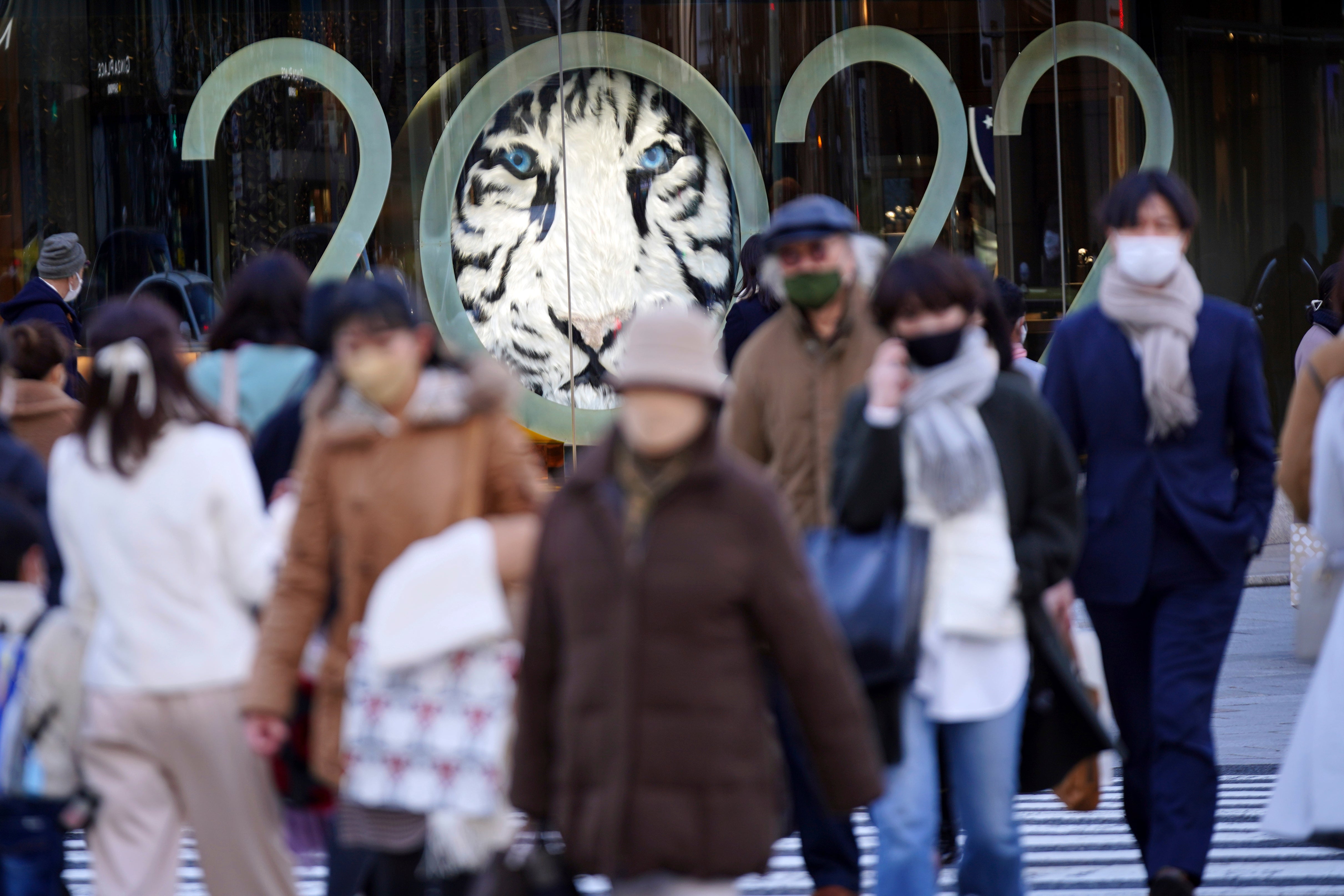Japan widens COVID curbs, including in Tokyo, as cases surge
The Japanese government will place Tokyo and a dozen other areas under new restrictions for COVID-19 effective Friday, allowing local leaders to shorten hours for eateries, as a surge in omicron cases threatens to paralyze society

Your support helps us to tell the story
From reproductive rights to climate change to Big Tech, The Independent is on the ground when the story is developing. Whether it's investigating the financials of Elon Musk's pro-Trump PAC or producing our latest documentary, 'The A Word', which shines a light on the American women fighting for reproductive rights, we know how important it is to parse out the facts from the messaging.
At such a critical moment in US history, we need reporters on the ground. Your donation allows us to keep sending journalists to speak to both sides of the story.
The Independent is trusted by Americans across the entire political spectrum. And unlike many other quality news outlets, we choose not to lock Americans out of our reporting and analysis with paywalls. We believe quality journalism should be available to everyone, paid for by those who can afford it.
Your support makes all the difference.The Japanese government will place Tokyo and a dozen other areas under new restrictions for COVID-19 effective Friday, allowing local leaders to shorten hours for eateries, as a surge in omicron cases threatens to paralyze society.
A government-commissioned experts’ panel on Wednesday approved a plan to put the 13 areas under a three-week restraint through Feb. 13, said Economy Revitalization Minister Daishiro Yamagiwa, who is also in charge of virus measures.
Prime Minister Fumio Kishida is expected to officially announce the new measures at a government taskforce meeting later Wednesday.
Japan has so far resisted the use of lockdowns to fight the pandemic and instead has focused on requiring restaurants and bars to close early and not serve alcohol, and asking the public to wear masks and practice social distancing, as the government seeks to minimize damage to the economy.
Japan had been gradually expanding social and business activity since an earlier wave of infections subsided in September, which experts say was largely due to the country’s rapid progress in rolling out the initial two doses of vaccines.
But experts say breakthrough infections by the omicron variant are more common. The fast-spreading variant has caused a number of medical workers and others to self-isolate after testing positive or coming into close contact with someone who has. Sharply rising infections have already begun to paralyze hospitals, schools and other sectors in some areas.
The national government is taking action following requests by local governors, including Tokyo Gov. Yuriko Koike who raised alarms about the possibility of essential public services, such as public transportation and garbage collection, grinding to a halt.
Tokyo reported 5,185 new infections Tuesday. Nationwide, Japan has logged more than 32,000 cases, bringing its total to 1.93 million cases, with 184,00 deaths.
More than 134,000 patients are now quarantining or hospitalized for COVID-19, according to the Health Ministry.
Shigeru Omi, the government’s top medical advisor, said vaccines no longer offer reliable protection against the omicron variant, making testing and social curbs among the only effective and realistic measures to prevent more infections.
Restrictions will be in place in 16 areas around the country, including three other prefectures — Okinawa, Hiroshima and Yamaguchi — which were placed under similar measures earlier this month.
Other areas, including badly hit Osaka where 5,396 new cases were reported Tuesday, may be added later.
While about 80% percent of Japanese have received their first two vaccine doses, the booster rollout nationwide has been slow and reached only 1.3% of the population.
The government recently decided to cut intervals between the second and third shots to six months from eight for elderly people, but younger people are unlikely to get their turn until March or later.
While Kishida stresses the need for safety as justification for the restrictions, the measures are also seen as political moves to gain public support ahead of this summer's parliamentary elections.
Critics also say the measures, which almost exclusively target bars and restaurants, make little sense and are unfair.